Parents and students in Singapore are getting ready for the Primary 6 (P6) science tests. It’s important to have good practice materials. This article offers a big collection of free P6 science test papers. They cover many topics and levels of difficulty.
Looking for past year exam papers, preliminary assessments, or weighted tests? You’ll find lots of resources here to help your child do well in P6 science.
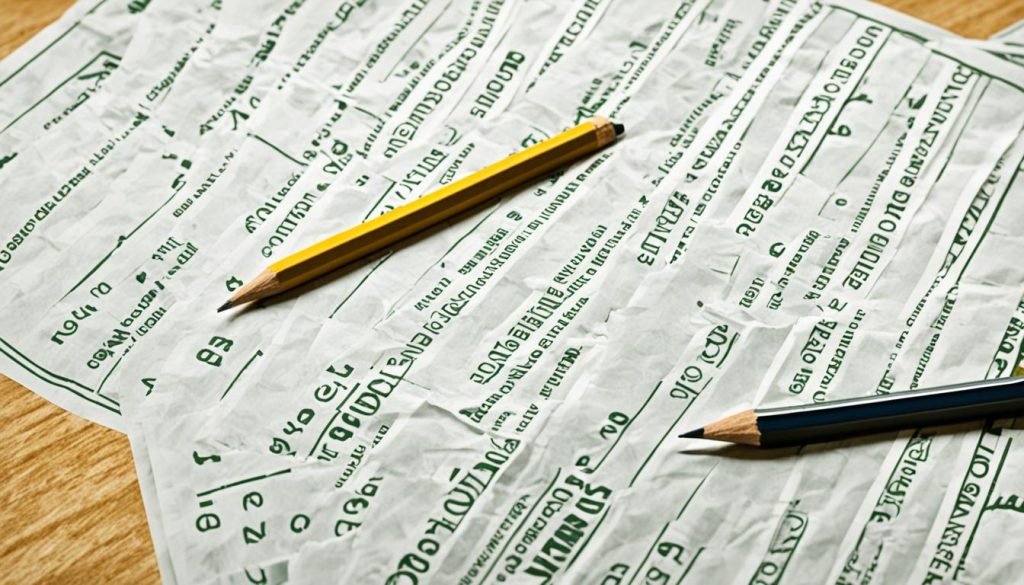
Key Takeaways
- Downloadable P6 science test papers from top schools in Singapore
- Access to a variety of assessment resources, including prelim exams and past year tests
- Comprehensive coverage of the P6 science syllabus and exam topics
- Boost your child’s confidence and performance in the P6 science assessments
- Free and easy-to-access resources for parents and students
Downloadable Primary 6 Science Exam Papers
In Singapore, students getting ready for the Primary 6 (P6) Science exams have many resources. One great resource is downloadable P6 science prelim papers from top schools.
2023 P6 Science Prelim Papers
The 2023 P6 science prelim papers include materials from schools like ACS Junior, ACS Primary, Ai Tong, and others. These primary 6 science practice exams help students get used to the exam format and difficulty.
By downloading and practicing with these p6 science prelim papers, students can improve their problem-solving skills. This collection of singapore primary 6 science assessments helps students know their strengths and weaknesses. It prepares them for their p6 science test paper exams.
Practicing with past papers is essential for mastering the concepts and developing the necessary skills to excel in the P6 Science exam.
These downloadable primary 6 science practice exams are great for students and parents. They are key for p6 science test downloads and p6 science prelim papers prep.
Past Year Primary 6 Science Test Papers
Getting ready for the Primary 6 Science exams? You’re in luck! This section offers a wide range of 2022 P6 Science exam papers from top schools in Singapore. These papers are great for reviewing and practicing for your exams.
2022 P6 Science Exam Papers
In 2022, many schools like ACS Junior, ACS Primary, Catholic High, Henry Park, MGS, Nan Hua, Nanyang, PLMGS, Red Swastika, Rosyth, SCGS, St Nicholas, and Tao made their papers available. You’ll find both prelim exams and weighted assessments. This gives you a full set of practice materials to improve your skills.
Using these 2022 Primary 6 Science exam papers will help you master important concepts and skills. Focus on understanding the material, not just memorizing answers.
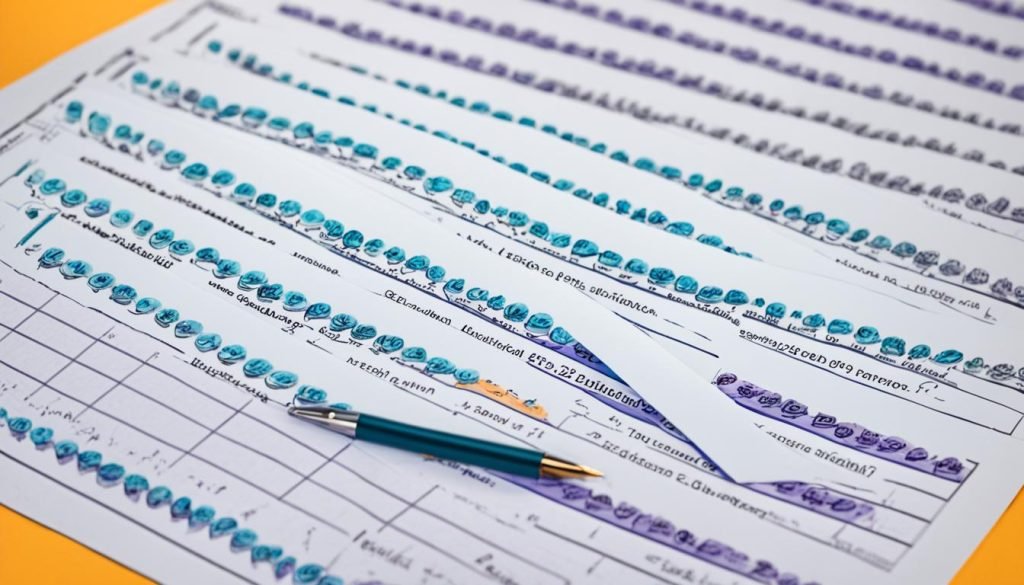
“Preparation is the key to success. By practicing with these past year test papers, you’ll be equipped to tackle the upcoming Primary 6 Science exams with confidence.”
Our website also has many other primary 6 science practice tests and resources to help you. Happy studying!
Parents and students in Singapore are getting ready for the Primary 6 (P6) science exams. Having good assessment books and resources can really help. These materials check how well students understand the curriculum. They also give students a chance to practice and get more confident.
There are many types of books and resources for P6 science in Singapore. They cover everything from detailed revision guides to practice papers. These are made by well-known educational publishers and follow the latest curriculum. They aim to help students do their best in school.
Comprehensive Revision Guides
Comprehensive revision guides are a big help for P6 science prep. These books go over the whole P6 science course. They have deep explanations, practice questions, and tips to help students understand better. Popular choices include the “Superzone P6 Science Revision Guide” and the “Marshall Cavendish P6 Science Revision Workbook”.
Practice Papers and Mock Exams
Students can also find lots of practice papers and mock exams to get better at exams. These come from top educational places and test makers. They are similar to the real P6 science exams, helping students get used to the questions and time limits.
Some top picks for P6 science practice papers are the “Learners’ Lodge P6 Science Exam Papers” and the “Marshall Cavendish P6 Science Examination Papers”.
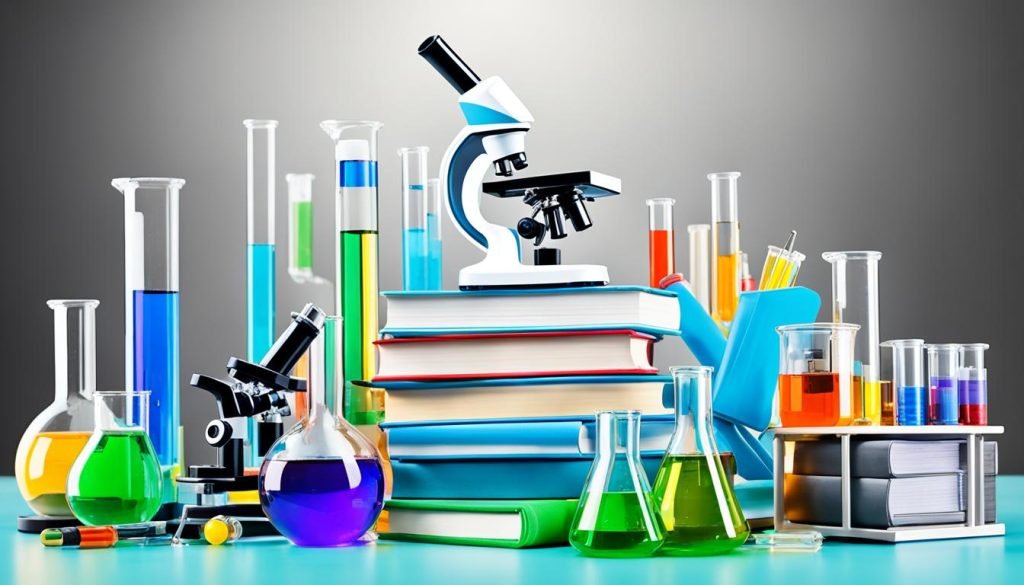
Supplementary Materials and Online Resources
There’s also a lot of supplementary materials and online resources for P6 science. These include websites, video tutorials, and digital platforms. They help students who like using technology to learn.
With all these P6 science assessment books and resources, students in Singapore can really improve in science. They can see what they’re good at and what they need to work on. This helps them do well in their P6 science exams.
download p6 science test paper
Finding the right school for your child’s science education is key in Singapore. Many top schools do well in the PSLE Science exam. They have great resources, dedicated teachers, and a strong curriculum.
Excelling in Primary 6 Science
Top schools for Primary 6 Science include ACS Junior, Nan Hua, Nanyang, Raffles Girls’ School, and SCGS (Singapore Chinese Girls’ School). These schools are known for their excellent science programs. Many students get top scores in the PSLE Science exam.
These Singapore primary schools with strong science programs offer modern science labs, fun activities, and expert teachers. They also have science competitions and field trips. These activities help students love science more.
“The best primary schools for p6 science in Singapore are those that not only focus on academic excellence but also nurture a deep appreciation for the sciences among their students.”
Choosing one of these top primary schools for p6 science means your child gets a great education. It prepares them for the PSLE Science exam and more.

- ACS Junior
- Nan Hua
- Nanyang
- Raffles Girls’ School
- SCGS (Singapore Chinese Girls’ School)
These best schools for primary 6 science in Singapore are great at helping young minds grow. They inspire a love for science that helps students achieve more in school and life.
Preparing for the PSLE Science Exam
Revision Tips and Strategies
As the Primary 6 (P6) science exam gets closer, students need good revision strategies to do well. The PSLE Science exam is very important. Using the right methods can really help. We’ll look at tips and strategies for P6 students to do great in their science tests.
First, it’s key to know the science syllabus and what topics are covered. Students should get to know the P6 science curriculum well. This helps them see what they’re good at and what they need to work on.
Trying past year P6 science exam papers is also a smart move. Doing these papers under the clock helps students get used to the exam’s format and time limits. Looking at the answers and seeing where they went wrong can also show them what to focus on next.
- Make a study plan: Set aside time each day for science, so you keep practicing and revising.
- Ask teachers for help: Talk to teachers to clear up any questions, get feedback, and get help where you need it.
- Use online tools: Look for online resources with practice questions, simulations, and study materials to help you study.
- Stay positive: Keep a positive attitude, celebrate your wins, and keep motivated as you prepare.
It’s also vital for students to take care of themselves while preparing for the exam. Eating well, exercising, and sleeping enough can boost your brain power and lower stress. Parents can support their kids by creating a good study environment and encouraging them to balance study, rest, and fun.
“The key to success in the PSLE Science exam lies in a consistent and strategic approach to revision. By following these tips and developing effective study habits, students can increase their chances of achieving their desired outcomes.”
The PSLE Science exam is a chance for students to show what they know and how they solve problems. By using these revision tips and staying positive, P6 students can face the exam with confidence. This can help them do well in school and beyond.

The primary 6 science syllabus in Singapore aims to give students a deep understanding of key scientific ideas. It includes many topics important for their growth and PSLE Science exam prep.
Here are the main topics in the primary 6 science syllabus:
- Living Things and Their Environment: This part looks at living organisms, their traits, and how they interact with their world.
- Cycles: Students learn about nature’s cycles, like the water cycle and life cycles, and how materials get recycled.
- Energy: The course covers different energy types, how energy changes, and why saving energy is important.
- Matter: Students study matter’s properties and how it changes, including its states and what makes up substances.
The curriculum also includes the scientific process, designing experiments, and using science in daily life. This approach helps students think deeply and apply what they learn in real situations.
| Topic | Key Subtopics |
|---|---|
| Living Things and Their Environment |
|
| Cycles |
|
| Energy |
|
| Matter |
|
Knowing the primary 6 science syllabus and its topics is key for students and parents. It helps them plan better for the PSLE Science exam. By understanding the curriculum, they can get a full grasp of the subject and improve their chances of doing well.
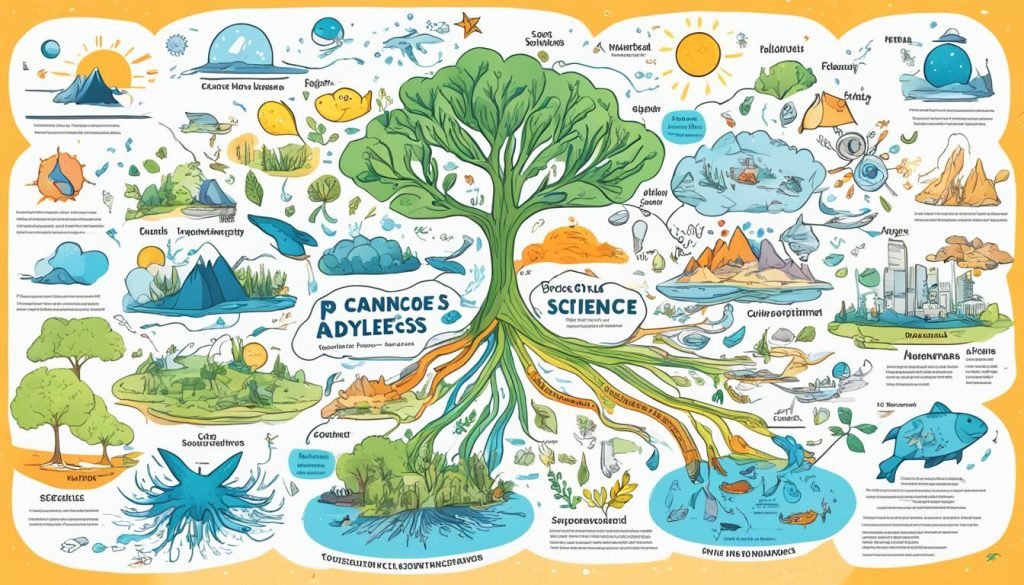
Top Resources for P6 Science Revision
Getting ready for the Primary 6 (P6) Science exam can be tough. But, with the right tools, students can feel more confident and do well. There are many great materials out there to help P6 students in Singapore learn science.
Assessment Books and Practice Papers
Top p6 science revision resources include assessment books and practice papers. These tools give students lots of practice questions. They also show what the exam will be like, what questions to expect, and how to score.
Some top assessment books for primary 6 science in Singapore are:
- Marshall Cavendish Education’s “P6 Science Assessment Book”
- Shinglee Publishers’ “Top Science Topical Assessment”
- Learners Publishing’s “Primary 6 Science Practice Papers”
These books cover many topics like life sciences and physical sciences. They also have answers and strategies for different questions. Plus, singapore primary 6 science practice papers from trusted publishers make exams feel real. They help students see where they need to get better.
| Assessment Book | Publisher | Key Features |
|---|---|---|
| P6 Science Assessment Book | Marshall Cavendish Education | Comprehensive coverage of P6 science topics, detailed answer explanations, and exam-style practice questions. |
| Top Science Topical Assessment | Shinglee Publishers | Focused on specific science topics, with in-depth practice and analysis of common question types. |
| Primary 6 Science Practice Papers | Learners Publishing | Realistic mock exams that simulate the actual P6 Science assessment, with detailed feedback and scoring guidelines. |
Using these excellent p6 science revision resources, P6 students in Singapore can build a strong science base. They can see what they’re good at and where they need to work harder. This helps them do better in the P6 Science exam.
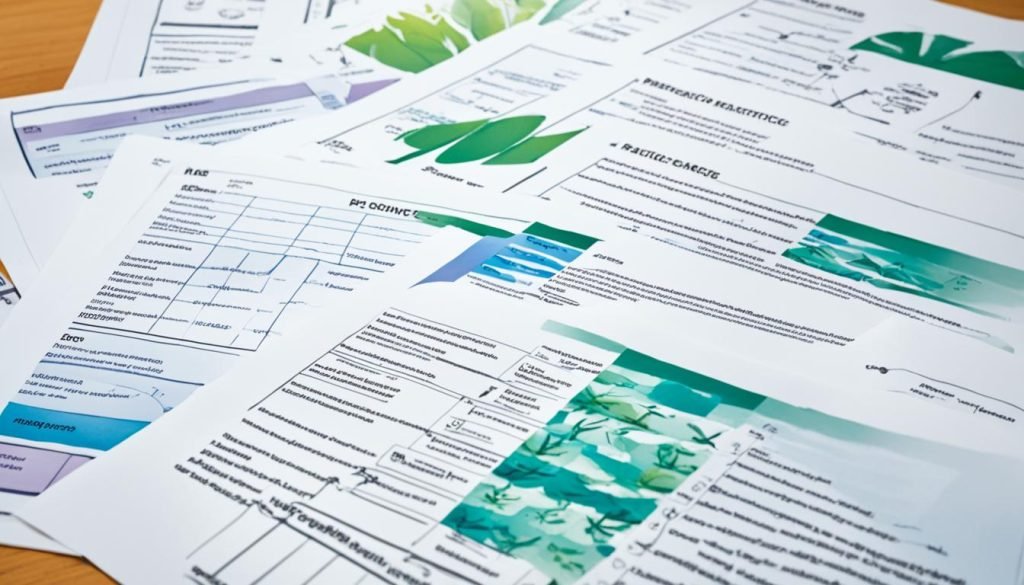
Tips for Parents: Supporting Your Child's Science Learning
As parents, we are key in making our kids love science. We help them do well in Primary 6 (P6) science. By supporting their science learning, we boost their curiosity and problem-solving skills. This helps them do better in school. Here are some tips for parents to help their child with primary 6 science:
- Create a Conducive Learning Environment: Make a special study area at home without distractions. It should have science books, toys, and stationery. Teach your child to keep their study area tidy.
- Encourage Hands-on Experiments: How parents can support p6 science learning is by letting kids explore. Do simple science experiments at home. This helps them understand science better and gets them interested.
- Monitor Progress and Provide Feedback: Check your child’s science work often. See where they’re good and where they need help. Give them feedback to improve. Celebrate their wins and keep them motivated.
- Collaborate with Teachers: Talk often with your child’s science teacher. Know the curriculum and how they teach. Work with the teacher to find ways to encourage primary 6 students in science and support your child.
Using these tips, you can help your child with their science. Your support and encouragement matter a lot. They can really help your child do well in school and love science more.
“The key to developing a love for science in children is to make it fun, engaging, and hands-on. When they can explore and experiment, they’ll naturally become curious and eager to learn more.”
In Singapore, science education is very important. It’s key for a nation leading in innovation and tech. A strong science base helps students and the country grow.
For primary students, doing well in P6 Science is big. It opens doors to many careers like engineering and medicine. It also sets the stage for a bright future.
Science education also boosts critical thinking skills. These skills help in all areas of life. Students learn to solve problems and think creatively.
Also, a strong science base helps Singapore lead in innovation. The next generation will drive progress with their science knowledge. They’ll make Singapore a global leader in innovation.
In short, science education is crucial in Singapore. It offers many career paths, boosts critical thinking, and helps tech growth. It’s key to Singapore’s education and the future of its students.
“The foundation of every state is the education of its youth.”- Diogenes
Conclusion
This article has given Singapore students free P6 Science test papers and lots of resources. These help them do well in their Primary 6 science tests. By using these practice exams and tips, students can feel more confident and understand science better.
It also talked about why science education is key in Singapore. It shapes the future of students. With these top-quality P6 science test papers and resources, students can do great in science.
The article covered the P6 science syllabus, how to do well in exams, and offered support. It helps students do well in primary science. By using these tips, students can reach their goals and help science and innovation grow in the nation.

